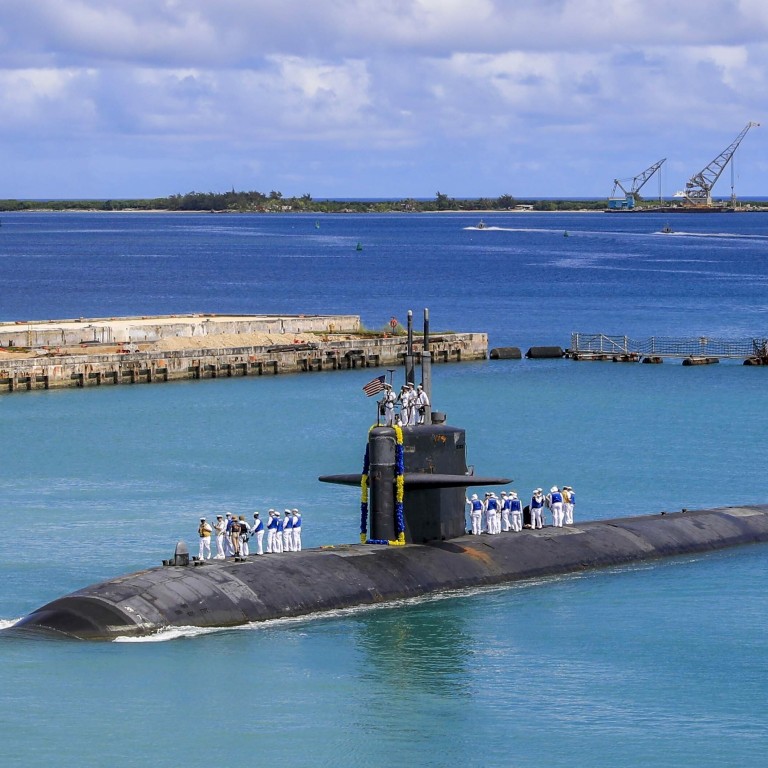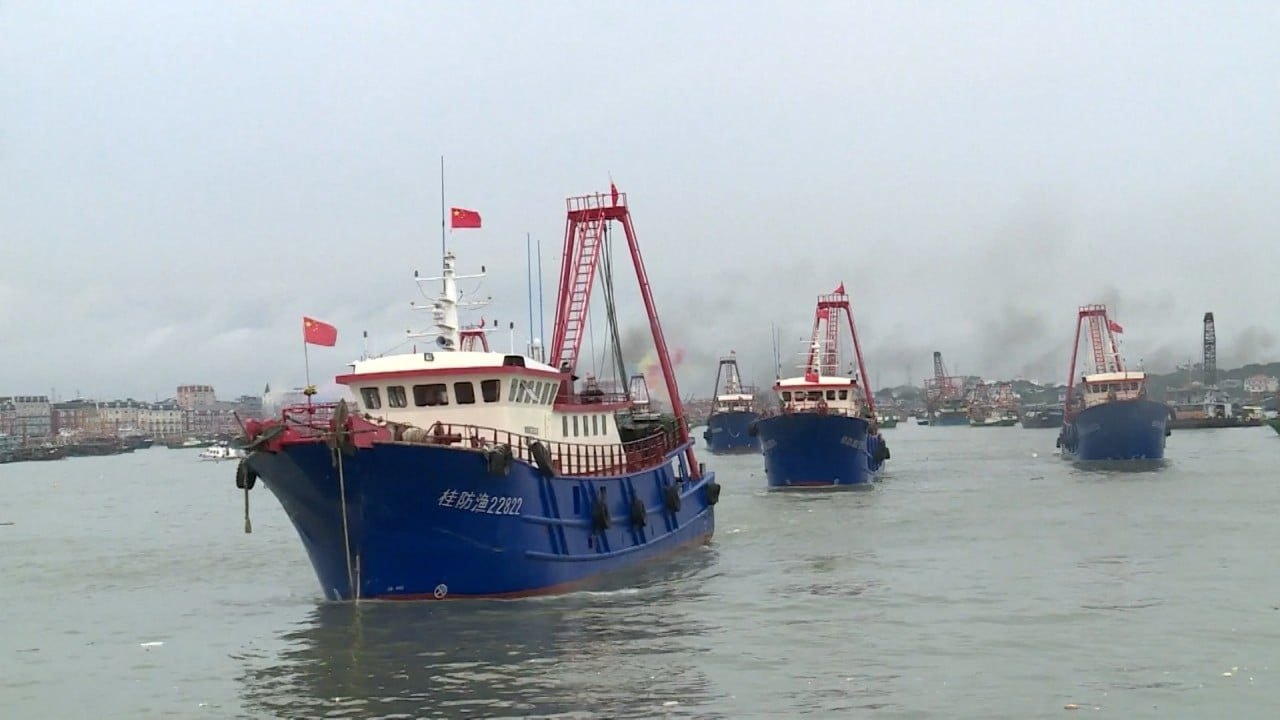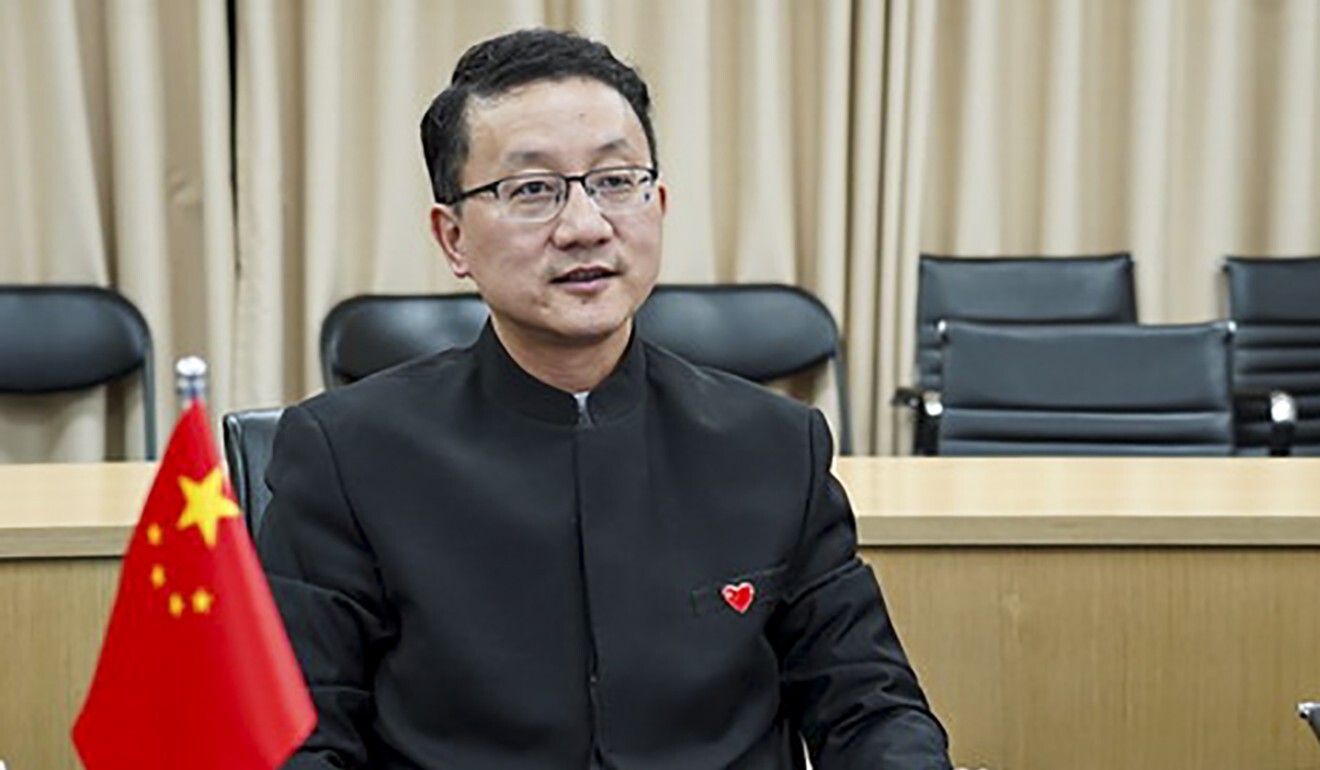
China seeks support from Southeast Asia after US, Britain and Australia unveil new security pact
- A senior foreign ministry official has met ambassadors from the region to discuss the new Aukus alliance, which he denounced as ‘hypocritical and treacherous’
- Many countries in the region are reluctant to pick sides between the two superpowers, but the Philippines and Singapore have welcomed the new grouping
Liu Jinsong, the director general of the foreign ministry’s department of Asian affairs held separate meetings with ambassadors from the Philippines, Singapore, Thailand, Malaysia and Indonesia in Beijing in recent days to discuss the new Aukus alliance, the ministry said on Friday.
During the meetings, Liu denounced Aukus as the work of “racially and geopolitically motivated cliques”.
He told the diplomats: “Some countries have defied world trends and the international consensus by engaging in highly targeted and exclusive ideological and military alliances, adopting double standards and doing whatever they want on issues such as nuclear non-proliferation.
“Such hypocritical and treacherous words and actions not only undermine the Southeast Asia Nuclear Weapon-Free Zone Treaty but could also spur regional arms races and create tension and division.”
A battleground between China and the West raises concerns over Aukus deal
He also took aim at Australia, which he said “had always been looking for friends in the West rather than in the East”.
It also marks a strategic shift from Australia, which has long tried to balance its security ties with the US and its economic relations with China.
So far the response to the new partnership has been mixed in Southeast Asia, a region that has emerged as a major arena of competition between China and the US.
Vietnam, the most vocal critic of Chinese claims in the South China Sea, appeared to be cautious, saying that it would keep track of the situation while urging all countries to ensure “peace, stability, cooperation and development” in the region.

01:37
Chinese fishing boats return to disputed South China Sea after summer moratorium ends
Other Asean members, including Thailand, Brunei, Cambodia, Laos and Myanmar, have yet to outline their positions.
Earlier, Malaysian defence minister Hishammuddin Hussein suggested that he would visit China soon to hold consultations with his Chinese counterparts about the pact, a move regional observers said reflected the country’s deep concern.
Nuclear submarines for Australia a boost to region’s hard power, analysts say
Ivy Kwek, research director at Research for Social Advancement, a Malaysia-based think-tank, noted that Hussein’s proposal to go it alone instead of consulting other Asean countries was “confounding” and was not likely to have any tangible result.
“As a small state, Malaysia has valid concerns that Aukus would lead to an intensified arms race and escalations in the region, and is keen to tap into China’s thoughts,” Kwek said. “Malaysia is also keen to appear neutral amid great power competition and distance itself from Aukus, perhaps overcompensating a little in this case.”
Malaysia plans China consultations as anxiety simmers over Aukus defence pact
If Hishammuddin does visit China, it could offer Beijing an opportunity to win over some regional players and stop them further tilting towards the US.
“China can take this opportunity to assuage fears that China might retaliate against any of the three countries or countries which have shown support towards the defence pact, and affirm its commitment to the peace and stability of the region,” Kwek said.
“It is undeniable that Aukus was motivated by China’s rising military power and assertiveness, hence it would be wise for China not to do anything rash that might be conferred as a confirmation towards that narrative.”

Hishammuddin could also seek some mutual understanding from Beijing to minimise risks of incidents at the South China Sea, which is now a dangerous flashpoint between China and the US, Kwek added.
Aaron Rabena, a research fellow with Manila-based think tank Asia-Pacific Pathways to Progress, noted that China may use its economic leverage to ensure its Southeast Asian neighbours do not follow Australia’s example.
“It would thus be in China’s best interests to ensure that regional countries would not takes sides even if only as an expression of political support, because political support could eventually lead to political and strategic cooperation,” he said,

06:24
Explained: the history of China’s territorial disputes
“China could further leverage economic cooperation or initiatives to see to it that relevant countries in the region … do not align with an anti-China coalition”.
While regional leaders in Southeast Asia have repeatedly said they do not want to take sides between the US and China, Rabena warned: “Two extreme possible scenarios might play out here: major powers taking matters into their own hands at the expense of Asean; or Asean countries gradually being forced to choose sides.”

